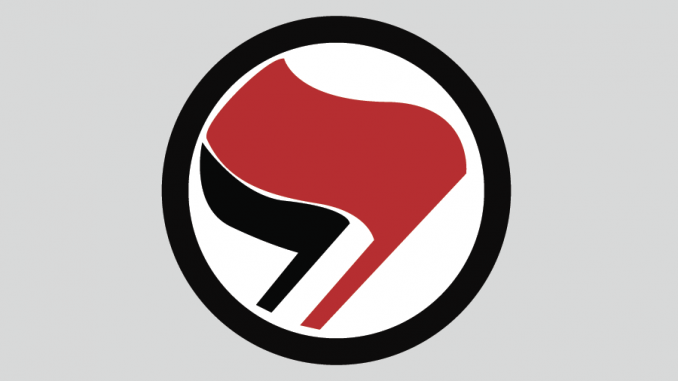
Antifa, or anti-fascism, has graced recent headlines for baseless allegations in various movements and protests.
Amid political rhetoric on the movement’s goals from both sides, Temple University students and faculty have found themselves revisiting the definition of what the movement actually is.
Fascism is a type of totalitarian politics that seeks to make everything subservient to the state and the fascist party that controls the state, said Scott Ritner, a political science professor. In many cases, racism is a key component.
Anti-fascism is as old as fascism, and today’s rise in anti-fascist beliefs is a direct response to people recognizing the increased prominence of fascist groups like the Proud Boys and the American Identity Movement, according to the Southern Poverty Law Center.
These groups promote ideas of racial purity on which oppression and domination were practiced, Ritner said.
“[Antifa] is not an organization,” he added. “It’s not even really an ideology, although it kind of is a set of political ideas, but against fascism. It’s really a set of tactics and strategies designed to confront and disrupt fascist and racist street politics.”
This year, anti-facist movements have made hand sanitizer for essential workers, taken part in peaceful protests against police brutality or thrown drinks at right-wing politicians. It is not inherently violent or destructive, Ritner said.
“Mutual aid is anti-fascist, being an anti-racist is anti-fascist, believing in immigrants’ rights is anti-fascist, wanting to see a more peaceful world is anti-fascist,” Ritner said. “A lot of the things that a lot of people do every day are anti-fascist without having to put on black jeans and a black hoodie and going out and fighting fascists in the streets.”
Class discussions about antifa vary depending on which course Ritner is teaching and the students in the classes. Introductory classes are less likely to touch on facism, and anti-fascism by extension, until the end of the semester.
“I have not experienced many students who are hostile to antifa,” Ritner said. “But that may simply mean that those students who do hold some antipathy to them don’t feel comfortable expressing that in class or in a class with me. I do what I can to encourage students of all political stripes to freely express themselves in my classes, but I cannot guarantee that they will always want to do so.”
Stanton Young, a first-year film and media arts master’s student and president of Temple Marxists, sees anti-fascism as the beginning, and not the end, of necessary changes of dismantling capitalism. He believes a socialist revolution is needed to bring power back to the working class, he said.
“What we’re dealing with isn’t just being anti-this-or-that behavior,” Young said. “It’s overthrowing a system that is destroying the planet and our livelihoods. And this is why we stand not just for being anti-fascist in our day-to-day behaviors, but we side with the socialist revolution that we think is necessary in our lifetime.”
President Donald Trump often tweeted about antifa prior to his account’s permanent suspension and characterized antifa as violent and wanted to declare it as a domestic terror group, the New York Times reported.
Brandon Miller, a liberal arts professor who teaches Quest for Utopia, finds the shortening of “anti-fascism” to “antifa” reminiscent of ideas in George Orwell’s novel “1984.”
“One of his major conceits of this dystopian world is that there’s this new language called ‘newspeak’ in which everything is abbreviated,” Miller said. “And what Orwell is concerned with is the state changing language ends up changing thought, and that limiting the capacity to express political ideas makes them more or less impossible to think about.”
The term antifa has the power to call up an enemy without thinking about the politics involved, he added.
“On the right, nobody ever says ‘anti-fascism,’ antifa is sort of this fast, clipped, call to arms almost,” Miller said. “And you can see how it mobilizes people. Antifa is a leaderless movement, it’s made up of different small, autonomous collectives all doing their different tactics everywhere. But invoking the word antifa, I think, calls to mind this image of this black-clad person in a helmet out doing violence.”


Be the first to comment